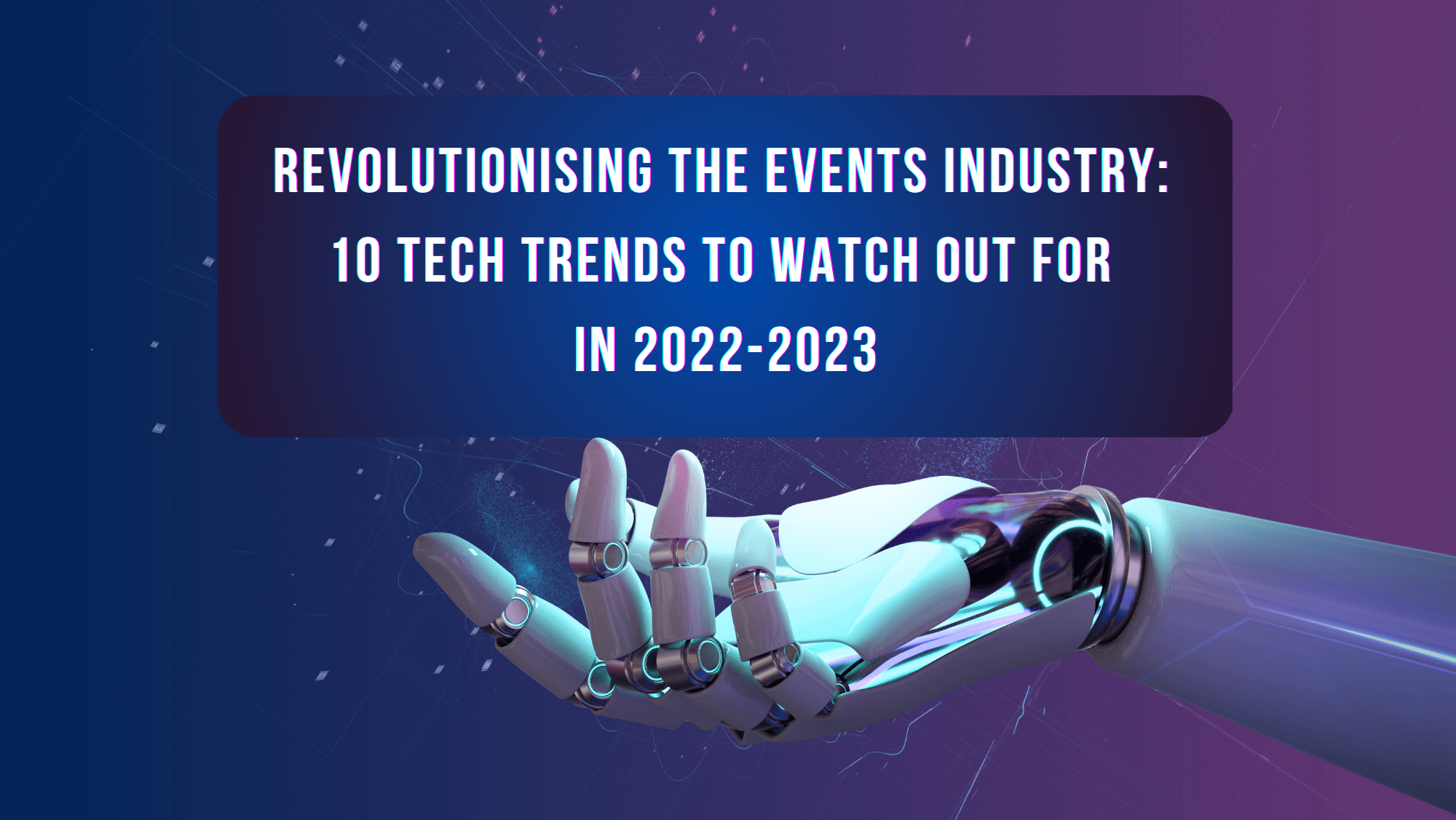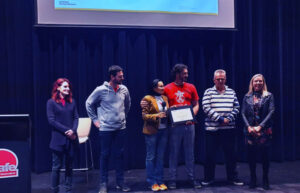The events industry has undergone a significant transformation in 2020 with a staggering 290% increase in virtual events hosted globally compared to the previous year. And now it is changing again with new event technologies emerging faster than ever.
Let’s look at ten technology trends that will be changing the events industry in 2022-2023:
Live Translation
One of the most significant challenges of virtual events is the language barrier. Live translation tools are now emerging for digital events, allowing event planners to overcome this challenge and truly make their events global. Platforms like Hopin offer real-time language interpreting directly within their live streams, making it easier for attendees to understand and participate.
Virtual Reality
VR allows event planners to organize events worldwide by creating virtual venues and avatars for attendees to interact with. It saves cost, puts attendees in distraction-free environments, and reduces the risk of spreading illness. VR headsets may not be household items yet, but they’re gaining popularity. Event planners can consider adding a VR component for VIPs who can’t travel or as an add-on experience to digital events.
Artificial intelligence (AI)
AI can be used to improve event personalization, enhance attendee engagement, and streamline event operations. For example, chatbots powered by AI can be used to answer attendee questions, provide recommendations, and even schedule appointments.
Augmented reality (AR)
AR can be used to create immersive experiences for attendees. For example, AR technology can be used to overlay digital information onto the physical environment, allowing attendees to interact with the event in a new and exciting way.
Livestreaming
Livestreaming has become increasingly popular in recent years, and it’s not hard to see why. It allows events to reach a much larger audience than would be possible with an in-person event alone, and it provides attendees with the flexibility to participate from anywhere in the world.
Event management software
Event management software has been around for a while, but it’s becoming more advanced and sophisticated all the time. With event management software, event planners can manage all aspects of an event in one place, from ticketing and registration to marketing and analytics.
Contactless technology
With the ongoing pandemic, contactless technology has become more important than ever. This includes things like touchless check-in, cashless payments, and virtual swag bags. A good example – QR codes.
QR Codes
QR codes are now replacing paper goods and menus in restaurants and cafes worldwide. And it’s not just in the food industry where they’re gaining popularity. QR codes are fantastic additions to physical marketing tools such as event flyers, speaker business cards, and postcards for event ticket leads. They also provide a germ-free way to connect planners with attendees, offering venue maps, event check-ins, brand experiences, and more, all through QR codes.
Holograms
Holograms can be used to dazzle attendees, educate potential partners, and demonstrate products to buyers in ways not many people have seen before. They can be used for celebrity commercial endorsements, award shows, life-size product imaging, and more. Holograms fit nearly any venue type, size, and location, and the units themselves are typically self-contained and come with all the audio and visual tools needed to run the hologram.
Digital Photo Booths
Virtual photo booths offer a great way to engage participants at social events, corporate functions, and marketing campaigns, providing a fun and interactive way for people to connect and share their experiences. Some virtual photo booths also offer features such as virtual props, animations, and instant sharing on social media platforms. Now event venues can offer planners more ways to engage attendees at in-person and hybrid events, and they can even use virtual photo booths to snap branded photos, GIFs, Boomerangs, and short videos of attendees both in-person and online.
These are just a few of the many emerging technologies that are changing the events industry. As technology continues to advance, we can expect to see even more exciting developments in the years to come.





